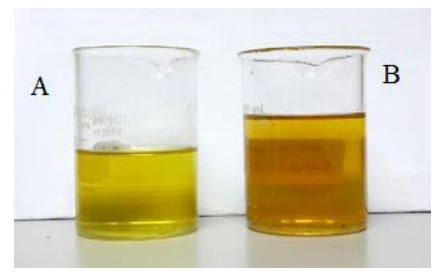Production of Biodiesel from Waste Cooking Oil Using Transesterification, with the KOH on Carbon Support from Waste Material and Egg Shell, as the Catalyst
Main Article Content
Abstract
Microwave assisted transesterification of waste cooking oil (WCO) is carried out in the presence of KOH on carbonized waste coconut shell support (KOH/CS), and CaO derived from waste egg shell (CaO-ES). The effect of reaction temperature on the yield of fatty acid methyl esters (FAMEs) is studied. Conventional transesterification is also performed for comparison. FAME production is also carried out with new cooking oil (NCO). The results show that a reaction temperature of 80 °C is optimum for FAME production in the presence of either KOH/CS or CaO-ES. The produced biodiesel properties satisfy the criteria according to ASTM D6751. Acid catalysed esterification of WCO before transesterification leads to higher production of FAMEs due to the reduction of free fatty acids (FFAs). However, conventional transesterification using WCO without esterification yields lower FAMEs. Although the microwave heating decreases the reaction time, it does not necessarily lead to an increase in FAMEs. The production of FAMEs depends on not only the type of transesterification process, but also the type of feedstock. Comparing KOH/CS with CaO-ES, KOH/CS is preferable in terms of the quantity and quality of the produced FAMEs using a two-step process with H2SO4 catalysed esterification, followed by alkali catalysed conventional transesterification.
Article Details
Published articles are under the copyright of the Environment and Natural Resources Journal effective when the article is accepted for publication thus granting Environment and Natural Resources Journal all rights for the work so that both parties may be protected from the consequences of unauthorized use. Partially or totally publication of an article elsewhere is possible only after the consent from the editors.

